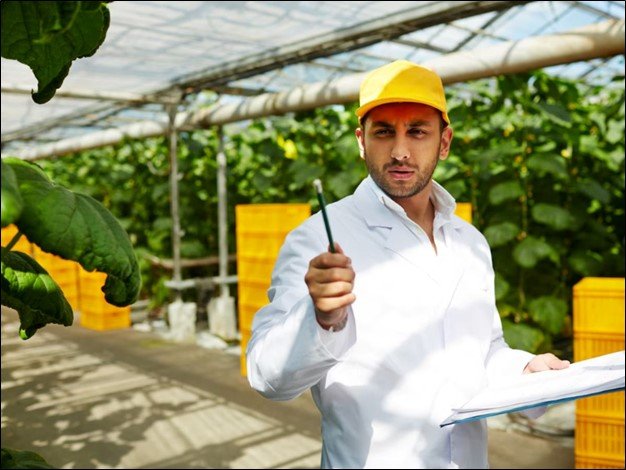Exploring Lucrative Career Opportunities: Food Technology Jobs in India for Freshers

Introduction:
India's food industry is undergoing a remarkable transformation, driven by changing consumer preferences, urbanization, and technological advancements. This transformation has opened up a plethora of career opportunities in the field of food technology for freshers. In this article, we will delve into the dynamic world of food technology jobs in India and discuss the various roles, skills required, and prospects that await young professionals.
The Evolution of the Indian Food Industry:
The Indian food industry has witnessed significant evolution over the years, transitioning from traditional cooking methods to modern food processing and manufacturing. This shift is primarily driven by the changing lifestyle of the Indian populace, who now demand convenient, healthy, and innovative food products.
Food technology plays a pivotal role in meeting these demands. It encompasses various aspects of food processing, preservation, packaging, quality control, and even the development of novel food products. As a result, there is a growing demand for skilled professionals in this field.
Food Technology: A Booming Sector for Freshers:

The Indian food technology sector offers a promising landscape for freshers seeking exciting career opportunities. Here are some key reasons why this sector is worth considering:
Rapid Industry Growth: The food industry in India is one of the largest and fastest-growing sectors of the economy. It has consistently outpaced other sectors in terms of growth rate, providing a stable environment for job seekers.
Diverse Career Paths: Food technology encompasses a wide range of sub-disciplines such as food engineering, food microbiology, food chemistry, and food quality assurance. Freshers can choose from various career paths based on their interests and strengths.
Innovation and Research: The sector encourages innovation and research, making it an attractive field for those who enjoy developing new food products, processes, or packaging techniques.
Global Opportunities: As India's food industry expands and matures, it opens doors to international markets, offering opportunities for global exposure and collaboration.
Sustainability Focus: With increasing concerns about sustainability and environmental impact, the food industry is moving towards eco-friendly practices. Professionals in food technology can contribute to sustainable food production and distribution.
Government Initiatives: The Indian government has launched several initiatives like 'Make in India' and 'Food Processing and Preservation' to boost the food industry, creating more jobs and investment opportunities.
Health and Wellness Trends: As health and wellness trends gain momentum, there is a growing demand for professionals who can develop nutritious and functional foods.
Now that we've established why the food technology sector in India is worth exploring, let's dive into the various career opportunities available for freshers.
Career Opportunities in Food Technology:
Food Technologist: Food technologists work on developing new food products and improving existing ones. They are responsible for ensuring that products meet safety, quality, and regulatory standards. Freshers in this role typically work as assistants, assisting senior technologists in research and development.
Food Safety Analyst: Food safety analysts are responsible for inspecting and monitoring food production processes to ensure that they meet safety standards. They also conduct food quality tests and audits to identify potential risks and hazards.
Food Quality Assurance Officer: These professionals focus on maintaining and improving the quality of food products. They perform inspections, conduct tests, and implement quality control measures throughout the production process.
Food Process Engineer: Food process engineers design and optimize manufacturing processes to enhance efficiency and reduce waste. They may also work on the development of new processing techniques.
Food Microbiologist: Food microbiologists study microorganisms in food and work to ensure food safety. They investigate and develop methods for preserving and extending the shelf life of food products.
Flavours: Flavours are responsible for creating the unique tastes and aromas of food products. They combine various natural and artificial ingredients to achieve specific flavors and aromas.
Food Packaging Technologist: Packaging technologists design packaging materials and techniques that preserve the freshness and quality of food products. They also consider environmental factors and sustainability in packaging design.
Research and Development (R&D) Scientist: R&D scientists in the food industry conduct experiments, research, and trials to develop new products, improve existing ones, and address specific challenges related to food technology.
Food Regulatory Affairs Specialist: These professionals ensure that food products comply with government regulations and industry standards. They deal with paperwork, submissions, and interactions with regulatory bodies.
Nutritionist: Nutritionists in the food industry focus on creating and analyzing the nutritional content of food products. They work to develop healthier and more nutritious food options.
Skills Required for Food Technology Jobs:
To excel in the field of food technology, freshers should possess a combination of technical skills, soft skills, and a deep understanding of the industry. Here are some essential skills:
Technical Knowledge: A strong foundation in food science, chemistry, biology, and engineering principles is crucial for understanding food processing, preservation, and quality control.
Analytical Skills: The ability to analyze data, conduct experiments, and interpret results is essential for roles involving quality assurance, research, and development.
Problem-Solving Skills: Food technologists often encounter complex challenges related to product development, safety, and quality. Effective problem-solving skills are invaluable.
Attention to Detail: Precision is critical in food technology, as minor errors can have significant consequences for product quality and safety.
Communication Skills: Effective communication is vital for collaboration with cross-functional teams, presenting research findings, and liaising with regulatory authorities.
Adaptability: The food industry is constantly evolving, so being open to learning and adapting to new technologies and trends is essential.
Regulatory Knowledge: For roles involving food safety and regulatory compliance, a strong understanding of local and international food regulations is necessary.
Creativity: Innovation plays a crucial role in product development and improvement. Creativity helps in developing unique food products and solving industry challenges.
Teamwork: Food technology professionals often work in multidisciplinary teams, so the ability to collaborate effectively is important.
Ethical Awareness: Understanding and adhering to ethical standards and sustainable practices are increasingly important in the food industry.
Prospects and Salary Expectations:
The prospects for freshers in the food technology sector are promising. As they gain experience and expertise, they can progress into more specialized and higher-paying roles. The salary in this field varies depending on factors such as location, company, job role, and experience level.
Here's an approximate salary range for some common entry-level food technology positions in India:
Food Technologist: Fresher’s can expect an annual salary ranging from ₹2.5 lakhs to ₹4 lakhs, with the potential for growth with experience.
Food Safety Analyst: Salaries for fresher’s in this role typically range from ₹2.2 lakhs to ₹3.5 lakhs per year.
Food Quality Assurance Officer: Entry-level professionals in food quality assurance can earn between ₹2.4 lakhs to ₹4 lakhs annually.
Food Process Engineer: Fresher’s working as food process engineers can expect salaries ranging from ₹2.5 lakhs to ₹4 lakhs per year.
Food Microbiologist: The salary for entry-level food microbiologists usually falls between ₹2.2 lakhs to ₹3.5 lakhs annually.
In conclusion, the world of food technology in India holds immense promise and potential for fresher's looking to embark on a rewarding career journey. As we continue to witness a dynamic shift in consumer preferences, sustainability concerns, and technological advancements, the opportunities within this field are not only lucrative but also essential for shaping the future of our food industry.
In India, where culinary traditions run deep and the demand for innovative and sustainable food solutions is on the rise, food technology professionals are poised to play a pivotal role. From creating healthier and more nutritious products to revolutionizing supply chains and reducing food waste, the scope for impact is vast.
However, success in this field requires not just technical knowledge but also a passion for creativity and a commitment to addressing the challenges of our time. As fresher's, you have the opportunity to bring fresh perspectives and innovative ideas to the table, making a significant difference in how we produce, distribute, and enjoy food.
So, as you embark on your journey in the world of food technology in India, remember that your career is not just about financial gain; it's about contributing to the well-being of society, promoting sustainability, and indulging in the art and science of food. The road ahead may be challenging, but it's a path that promises not only prosperity but also the satisfaction of knowing that you're part of a movement that is shaping the future of food for generations to come. Embrace this exciting journey, and let your passion for food technology lead you to a fulfilling and lucrative career.










